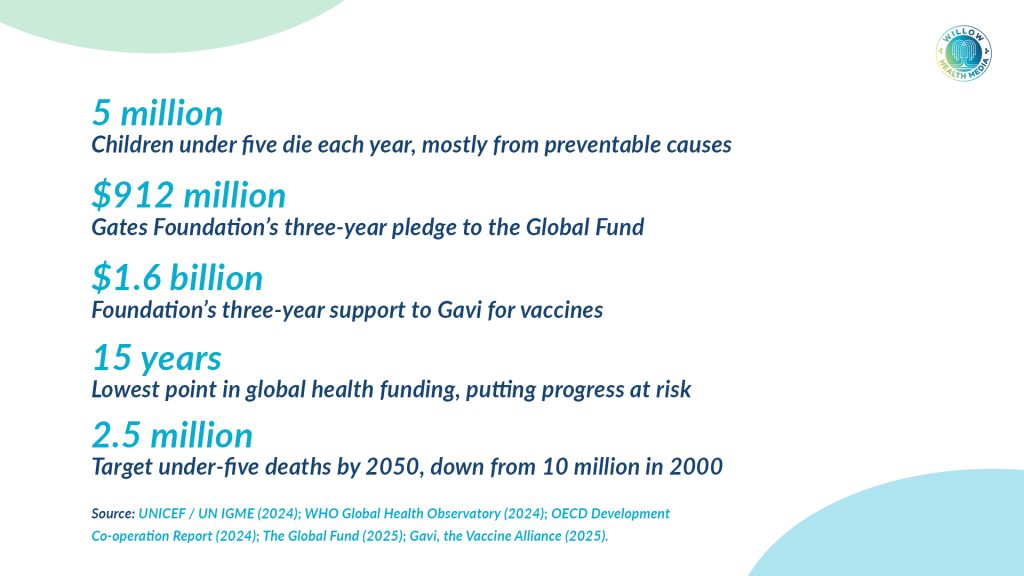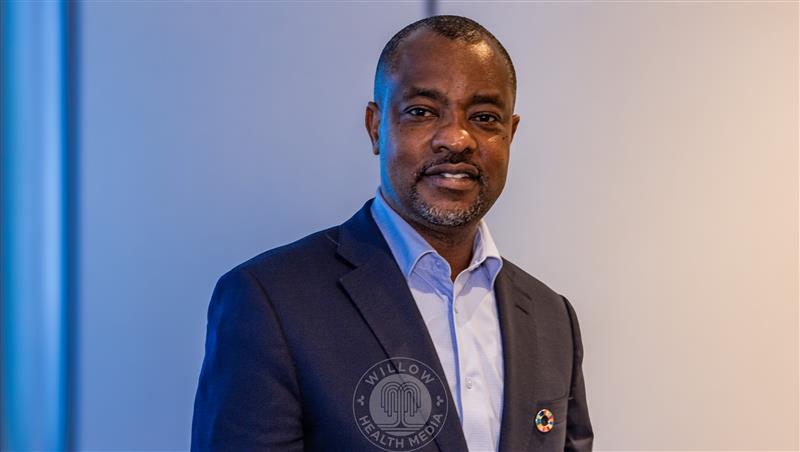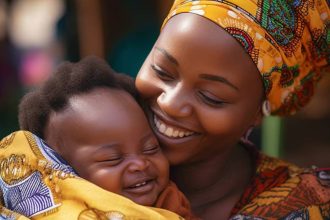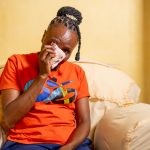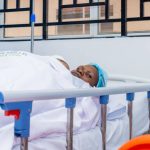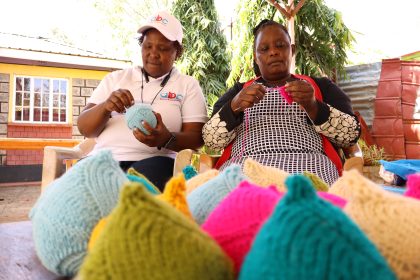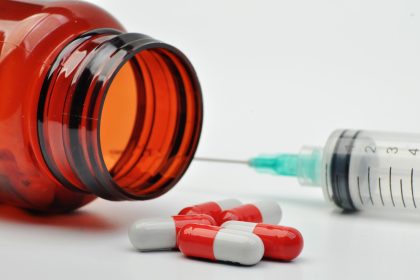At the Goalkeepers Event in New York, African innovators like Kenya’s Margaret Odera and Uganda’s Kristal Birungi showcased homegrown solutions for improving maternal health, child survival, and fighting diseases.
At the recent 80th UN General Assembly in New York, where global health took centre stage, the Gates Foundation’s Africa Director, Dr Paulin Basinga, highlighted Africa’s critical role in advancing Universal Health Coverage (UHC) and reducing child mortality.
“We are at a crossroads,” he told Willow Health Media in an exclusive interview. “Five million children still die every year from preventable causes like malaria, pneumonia, and diarrhoea. That is 13,700 children lost every single day; an entire primary school class gone every few minutes.
He echoed philanthropist Bill Gates’ warning that millions of children’s lives are at stake, arguing that the above “are not mysterious diseases. We know how to prevent and treat them. We have the vaccines, we have the medicines, and yet progress has slowed. The question is whether Africa can harness its own innovations, resources, and leadership to drive the next phase of progress.”
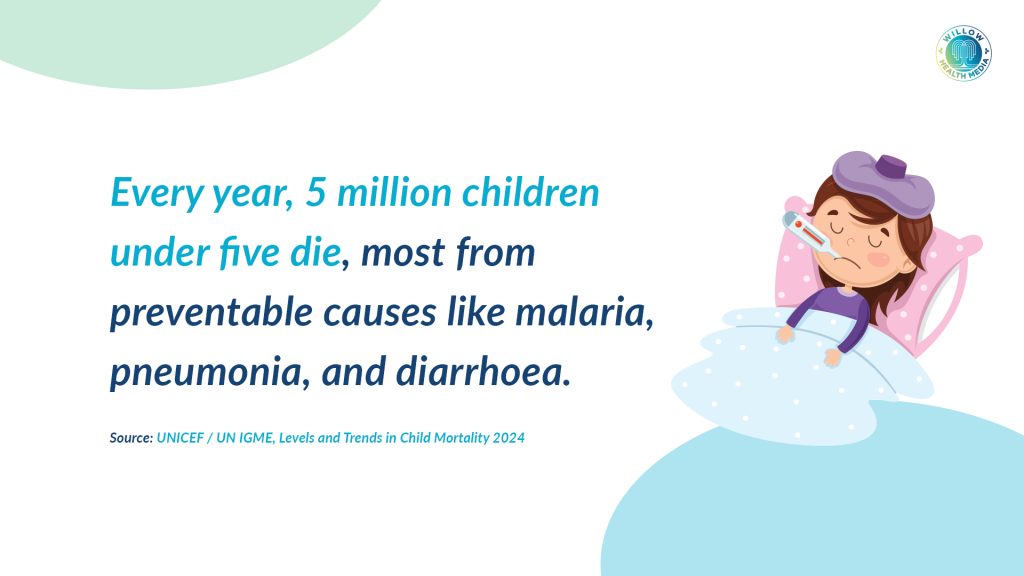
Over the past 25 years, under-five mortality has halved from 10 million to five million deaths annually, with an ambitious target of reducing it to 2.5 million by 2045.
“Some might think it’s not ambitious enough given the tools we have now,” Dr Basinga acknowledged. “But reaching the hardest-to-reach populations in conflict zones and remote areas will be extremely challenging.”
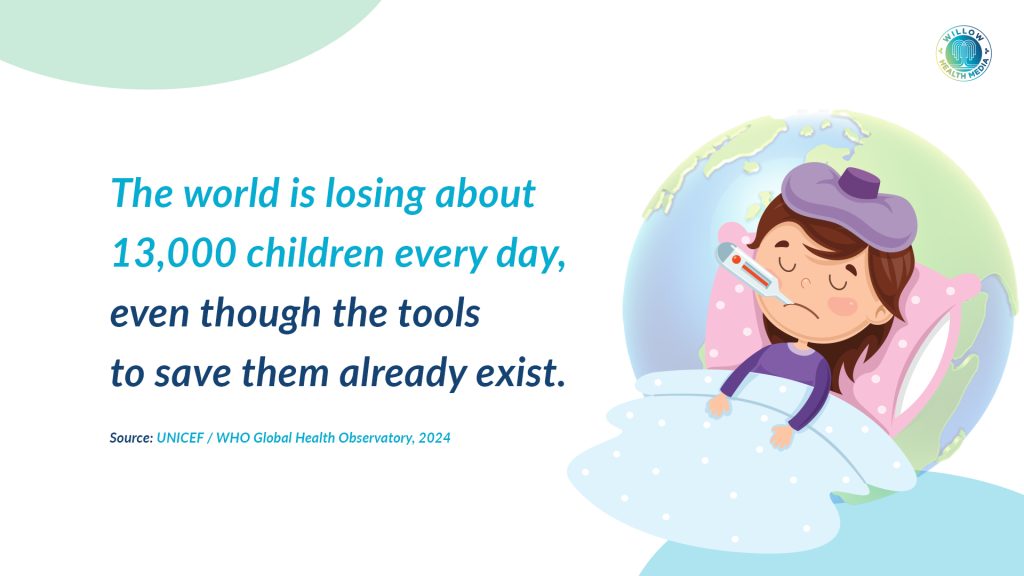
Researchers from Kenya, Nigeria, Uganda and South Africa are blending global science with local context, producing effective, scalable solutions
The stakes are high. Global health financing has fallen to a 15-year low. At the same time, African governments, many still reeling from the economic toll of Covid-19, are facing mounting debt and slow growth. But within this challenge lies an opportunity: Africa is demonstrating that homegrown solutions and leadership can push the continent closer to UHC.
Indeed, African ownership of health innovations was a recurring theme during the interview with Dr Mercy Korir, CEO of Willow Health Media. The Gates Foundation, he added, has pledged $912 million (Ksh118 billion) to the Global Fund, besides expanding its African footprint with new offices in Senegal and Kenya, alongside existing hubs in Nigeria, Ethiopia, and South Africa.
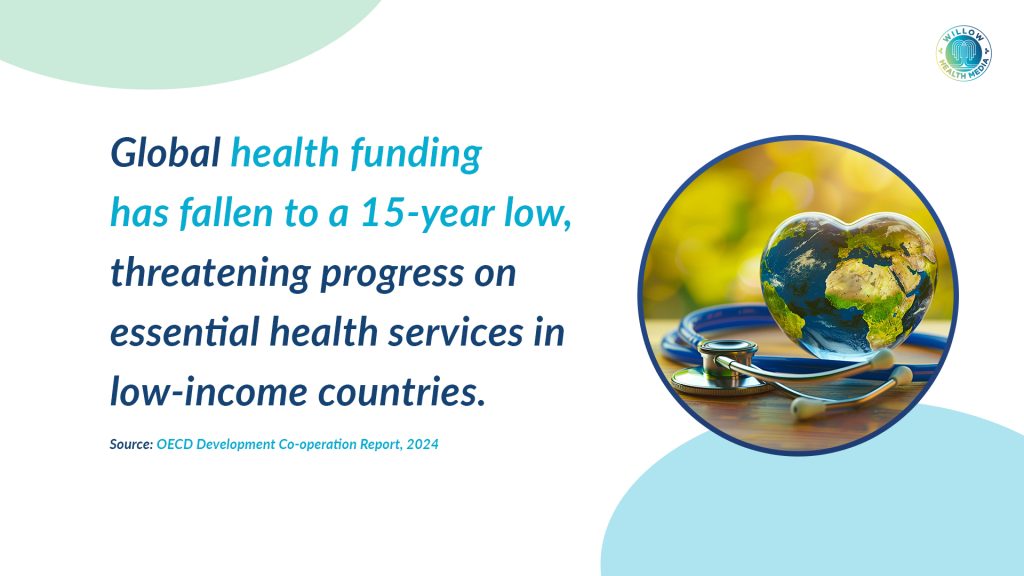
“Proximity matters,” Dr Basinga explained. “By hiring more Africans, we understand the context better. We know the researchers, we speak the language, and we connect them with resources to solve problems for Africa, from Africa.”
This approach is already bearing fruit. At the Goalkeepers event in New York, African innovators, including Kenyan community health promoter Margaret Odera and Ugandan scientist Kristal Birungi, showcased solutions addressing maternal health, child survival, and infectious diseases.
Researchers from universities in Kenya, Nigeria, Uganda, and South Africa are blending global science with local context, producing effective and scalable solutions.
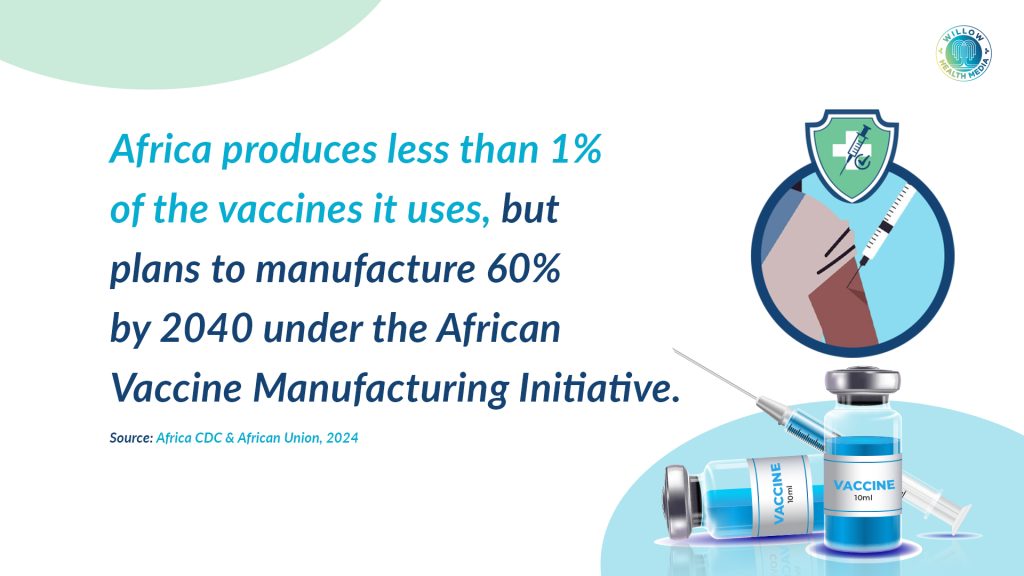
African countries must improve tax collection, cut waste, make health a budget priority
Dr Basinga said scaling up health solutions requires three things: streamlined regulations across Africa, lower costs for governments, and adapting innovations to fit local needs.
UHC coverage can hardly be achieved without robust primary health care (PHC), which handles 90 per cent of health needs. However, Dr Basinga said Africa’s systems are hindered by four key gaps: funding shortages, staff shortages, weak data, and inadequate access to medicine.
With donor money shrinking, Dr Basinga argues countries must generate their own funds by improving tax collection, cutting waste, and making health a budget priority.
Kenya is addressing these problems by launching a new health insurance scheme and partnering with local experts. The Gates Foundation supports these efforts by providing funding, technical assistance, and resources through international alliances such as the Global Fund and GAVI, the Vaccine Alliance. These contributions are designed as catalytic investments, not substitutes for government responsibility.
“We don’t implement programs,” he stressed. “We work through governments, universities, and private sector partners. Sustainability must be built in from the start.”
Artificial Intelligence (AI) can accelerate creation of vaccines, detect disease outbreaks faster
Kenya is also turning to digital health, using mobile platforms and digital records to improve primary health care. Dr Basinga believes digital tools will “optimise service delivery and strengthen sustainability” and create a sustainable model for the entire continent.
Dr Basinga also believes artificial intelligence (AI) can revolutionise health by accelerating the creation of vaccines, making supply chains more efficient, and detecting disease outbreaks faster.
Beyond financing and innovation, Africa faces another obstacle: misinformation. In Kenya and elsewhere, distrust of vaccines and global health initiatives remains rife.
“People ask: Why is the Gates Foundation so interested in Africa? Is there an ulterior motive?” Dr Basinga explained that “Transparency is critical. Africans working in these programs need to explain the ‘why’ that we are here to save children’s lives, to support African priorities.”
Africa’s population is fastest-growing, and global health goals depend on its systems being strong
Dr Basinga called on the media and leaders to combat misinformation with clear, factual messages. He also addressed the Gates Foundation’s planned closure in two decades, stating that for its work to last, programmes must be woven into the fabric of local governments, universities, and the private sector.
“Our goal is not to create parallel systems,” he said. “When we step back, governments, researchers, and companies should be stronger and more capable of continuing the work.”
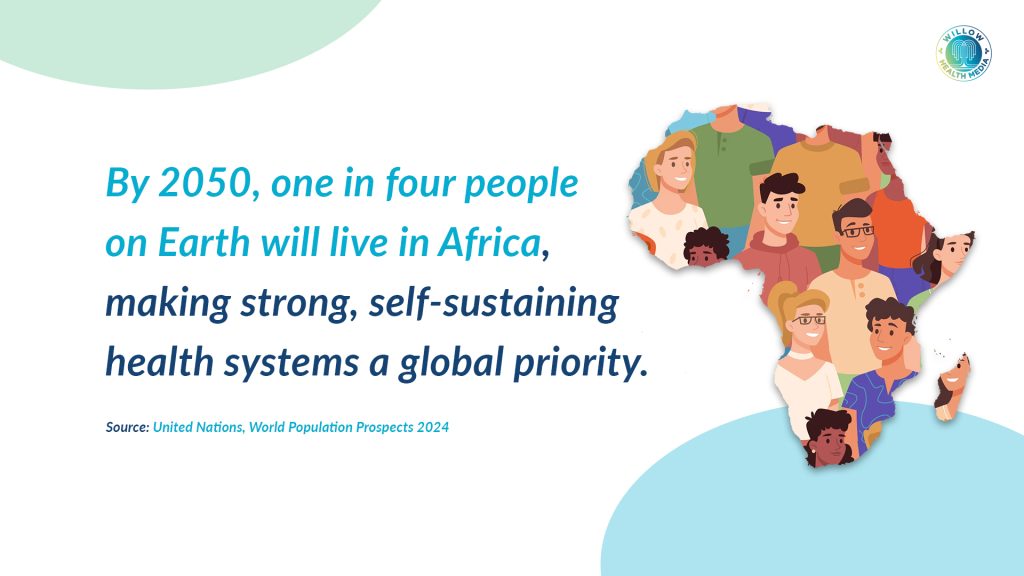
Africa’s role in universal health coverage is crucial. Its population is growing faster than anywhere else, so global health goals depend on its systems being strong. The good news is that the continent is full of ingenuity, with local workers, researchers, and entrepreneurs creating the foundation for a health revolution.
Think Community health workers trekking to remote villages, researchers building vaccines in local labs, and entrepreneurs in mobile money health financing are the building blocks of Africa’s health revolution.
As Dr Basinga put it: “Africa must lead. Africa must own the solutions. And when that happens, universal health coverage will not just be an aspiration, it will be our reality.”
